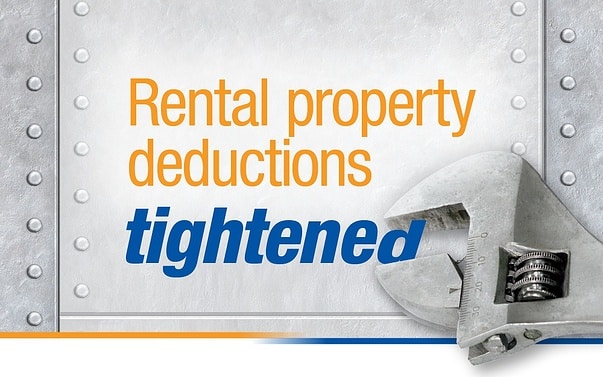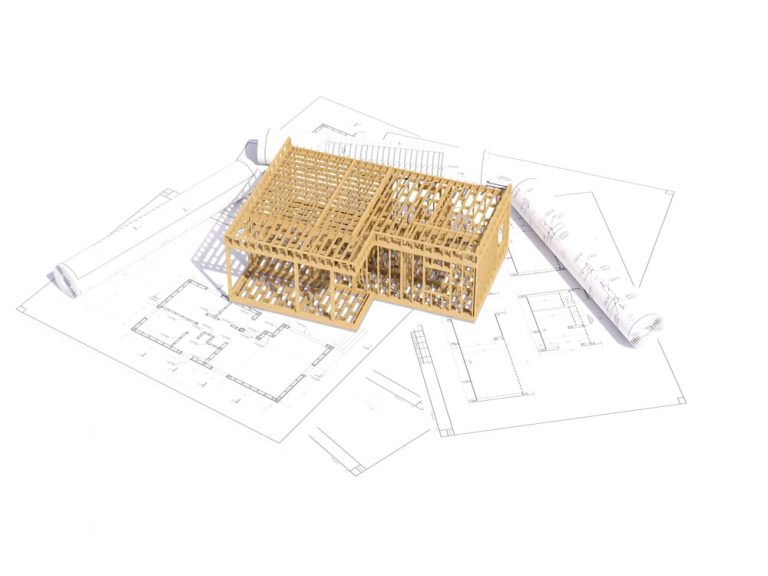Most property investors breathed a sigh of relief when rumours about the demise of negative gearing in the Federal Budget came to nothing. There were, however, several changes introduced with the potential to impact your property investment portfolio.
For some investors, the changes will significantly reduce the annual deductions they can claim on their rental properties, reducing their cash return. The changes apply to both individual investors and self-managed super funds (SMSFs), so investors may need to ensure they have sufficient cash flow from other sources to compensate.
The reforms highlight the continuing spotlight on tax deductions for investment and holiday rental properties, so investors need to be very cautious and stay within the rules.
Travel expense deduction scrapped
The key change is that as of 1 July 2017, property investors are no longer be able to claim a tax deduction for travel to maintain or collect rent for their residential rental property, or to inspect it during or at the end of a tenancy. In addition, travel expense claims for preparing the property for new tenants, or visiting a real estate agent to discuss the rental property have also ceased.
Where an investor engages a third-party such as a real estate agent or property management service to oversee their property, those expenses continue to be deductible.
For many investors, travel expenses were a valuable deduction especially for those owning properties interstate or overseas. According to the Treasurer, the rule change has been implemented as an “integrity measure to address concerns that such deductions are being abused”. Much of the concern related to problems with taxpayers claiming travel deductions without correctly apportioning the costs, or claiming travel costs that were for private travel purposes.
The changes will “rein in a high growth deduction item and improve taxpayer confidence in the negative gearing system”, the Treasurer noted. The fact the Federal Government expects additional revenue of $540 million over the next four financial years indicates the level of abuse it believes has been occurring under the current deduction rules.
Plant and equipment deductions tightened
Prior to recent changes, property investors were eligible to claim qualifying plant and equipment depreciation on assets in an investment property they purchase, even when the assets were installed by a previous owner. (Depreciation is the decline in value of assets with a limited effective life.)
Under the other key rule change announced in the Budget, depreciation deductions will now be limited only to the expenses directly incurred by the property investor, so subsequent owners will not be able to claim depreciation on existing plant and equipment assets in a property.
Broadly, plant and equipment items include mechanical fixtures or those easily removed from the property such as carpet, dishwashers and ceiling fans.
The rule change is due to concerns that some plant and equipment items are being depreciated multiple times by successive property owners.
Investors will still be able to claim capital works deductions (also known as building write off), including any additional capital works carried out by a previous owner. These will be based on the original cost of the construction work, rather than what the subsequent owner paid to purchase the property.
Only new investments affected
The depreciation changes will only apply to new property investments. Plant and equipment forming part of residential investment properties as of 9 May 2017 (including contracts already entered into on Budget night) will continue to be eligible for depreciation deductions until either the investor no longer owns the asset or the asset reaches the end of its effective life.
Plant and equipment purchased for a residential investment property after 9 May 2017 will only be claimable as a tax deduction over the effective life of the asset. The costs of these items will be reflected in the property’s cost base for capital gains tax (CGT) purposes.
As these expenses have changed from an income expense to a capital expense, property owners have lost one of the immediate tax benefits of holding a residential rental property, with the tax benefit now being delayed until the property is sold. This may have a significant impact on the cash flow received from your investment.
If you own residential property investments or plan to in the near future, call us to discuss how the new rules will affect their tax treatment.
Support for affordable housing
Although the Budget took away some of the previous tax benefits open to residential property investors, it also created a new one.
From 1 January 2018, Australian investors willing to rent residential investment properties to eligible tenants on lower incomes at below market rents may qualify for an extra 10 per cent capital gains tax (CGT) discount when they sell.
Under the new option, the CGT discount for qualifying affordable housing (either new or existing properties) will increase from 50 per cent to 60 per cent on the realised capital gains from the sale of the property. (The additional discount cannot be claimed by superannuation funds.)
For periods where the property is not used for affordable housing purposes, the additional CGT discount will be pro-rata.
To qualify, the property must provide housing to low-to-moderate income tenants (based on household income thresholds and composition), rent must be at a discount to the private market, and the property must be managed through a registered community housing provider.
Investments must be held and used for affordable housing for a minimum period of three years.





































































